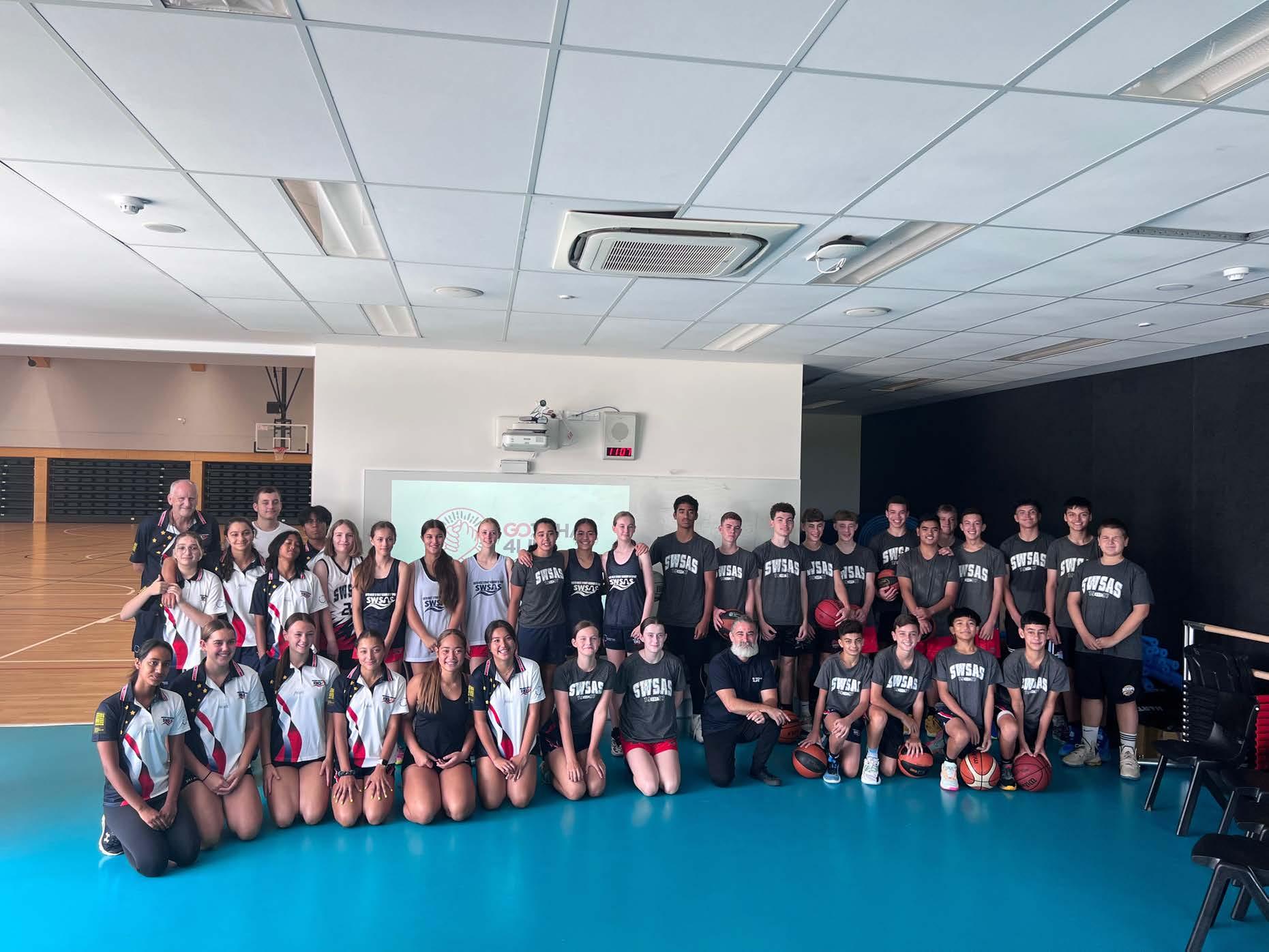
4 minute read
South West Sydney has Gotcha4Life
Athletes from across the Academy's thirteen sporting programs had the opportunity to join together in late January for a Mental Fitness and Wellbeingworkshop, facilitatedbyGotcha4Life.
The morning was set up through the Academy Basketballprogramssupportpartner,theIllawarra Hawks and their community partnerships program to provide the unique educational and team building opportunity to those athletes who were able to attend the workshop at Thomas Hassall Anglican College, during the last week of the schoolholidays.
Advertisement
Gotcha4Life founder, and strong mental health awareness advocate Gus Worland, might have been unable to attend in person, however sent through a video message to the athletes from England, in which he encouraged all to watch out for their mates, and speak up when something didn'tlookorfeelright.
This message was echoed by ManAnchor's Steve Gamble, and Fitsom's Rob Pisto (pictured right), who took the athletes through an interactive sessiononidentifyingmentalhealthconcerns,how tostartandhaveaconversationwithyourfriends, andwhereyoucanfindhelpandadviceshouldyou notbefeelingyourbestmentally.

The workshop was then followed up by a meditation and breath control session, before athletesfinallyworkedoutwhatthethirtybagsof ice, and the notice advising that some activities mayinvolvewaterwereasonebyone,theathletes were challenged to enter the ice bath to practice getting out of their comfort zone, and centering theirbreathingandmind.
Fortunately the Academy held the day in late January, although the next session is planned for 'hopefullyawarmday'inJuly.
"
The workshop was a great opportunity to hang out together as a squad and have some fun on and off thecourtaftertheholidays.
From learning the importance of being physically and mentally fit, to helping push each other out of ourcomfortzones(likejumpingintotheicebaths).
It was great to see all my coaches and team mates andIlookforwardtotheyearaheadwiththem."
Academy Basketball Athlete Emily Paulic (pictured left) provided the following summary of the event;
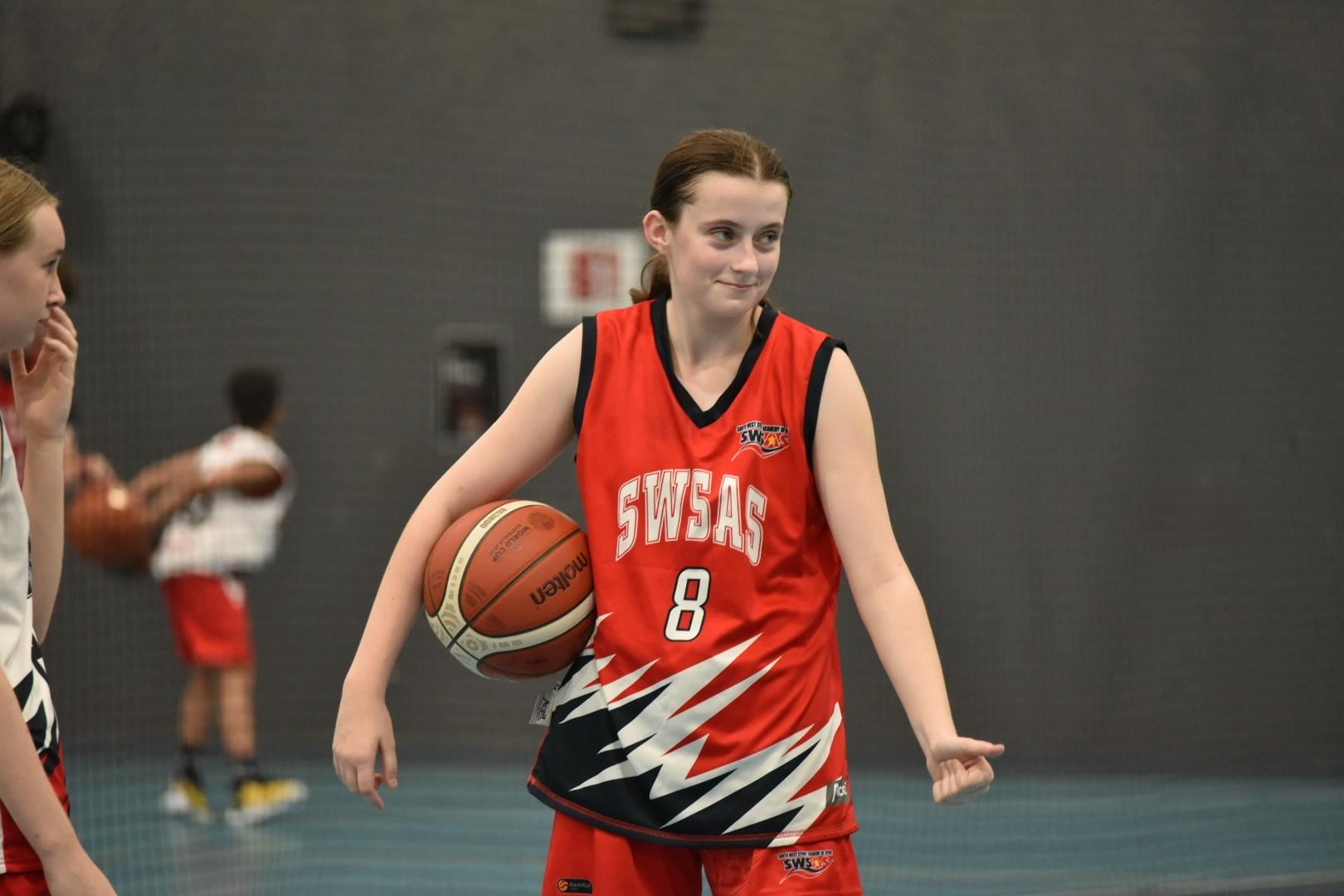
I learned from the workshop that no matter what is going on in your life, there is always someone who is willing sit down and listen to you, even if it’s a friend, parent, coach, teacher or a trusted adult.
I was able to realise that if you speak up you will not be judged, bullied or knocked down. People willtakethetimetolistenandunderstandyou.
You should speak up if you are struggling with your mental health for more than two weeks and notletyourmentalhealthpileup.
Ifyouletyourmentalhealthgetworsethenitwill soonaffectyourphysicalhealth.Andyouhaveto lookafteryourbodymentallyandphysically.
You have to keep your mental health to its maximumcapacitytobeabletoperformyourbest in your sport, and this can be done by taking a fewminutesadaytojuststopandrelax.
After a game or a practice you need to do a cool down to keep your body physically active for longer. That cool down can include some stretching exercises, and if possible an ice bath (orthree!).

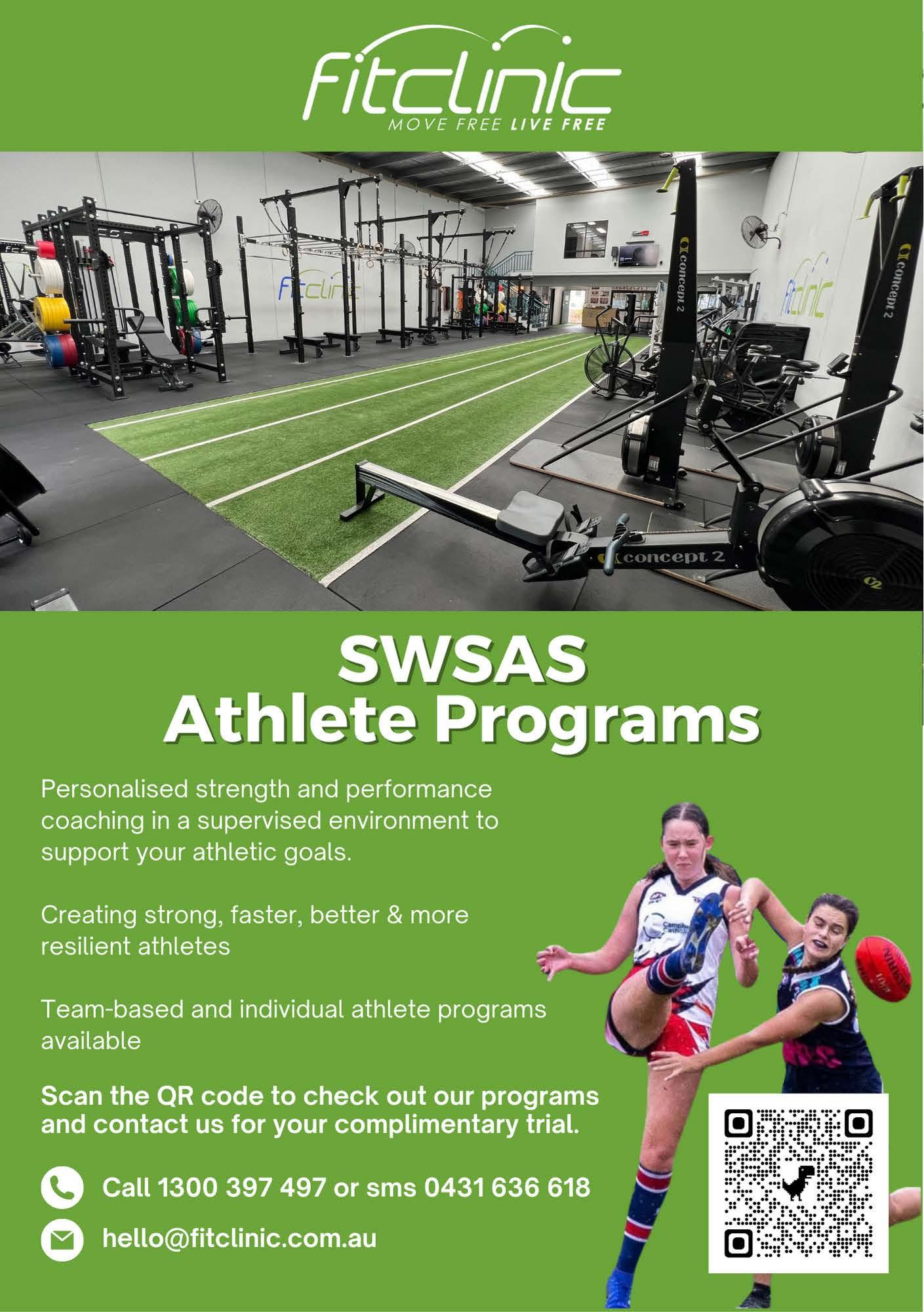
Enhancing your Performance
As Academy athletes head back into the new year, they are often faced with a multitude of opportunities to juggle, including Academy training, education, representative or school sportingcommitments,whichare oftennotjustin onesport,andsocialorfamilylife.
Thisinitselfcancreateanumberofchallengesin keeping across all events and where the athlete needs to be. Good time management skills are required to ensure that Academy training and representation commitments are met (including representing the Academy at the various Council Civic Receptions, school homework completed, and local club or representative training and gamesareattended.
Whereadditionalchallengescanlieisifthereare clashes between Academy squad training and expectations, and that of the local or representative club coach. First and foremost, the Academy program should come first, as it is an identified step within the Athlete's high performance pathway, however on occasion, the Academyunderstandsthisisnotalwayspossible.
The Academy's policy on attendance is as close to 100% attendance as possible is expected. Athletes are required to attend their Civic Reception as part of their athlete scholarship, as well as other promotional and educationsessionactivities.
Unless an athlete is competing at a higher level event, such as a State or National Championship, the athlete is expected to honour their commitment to the Academy, evenifabovetheirlocalrepteam.
So what happens if there is a clash you cannot get out of? Or how do you identify theseclashes?
TheATHLETEneedstocommunicate!Thismay include speaking with both the Academy coach, representative coach, and even havingthetwocoachesspeaktoeachother.
If there is still an issue, then the athlete should also seek communication from the Academysportprogrammanager.
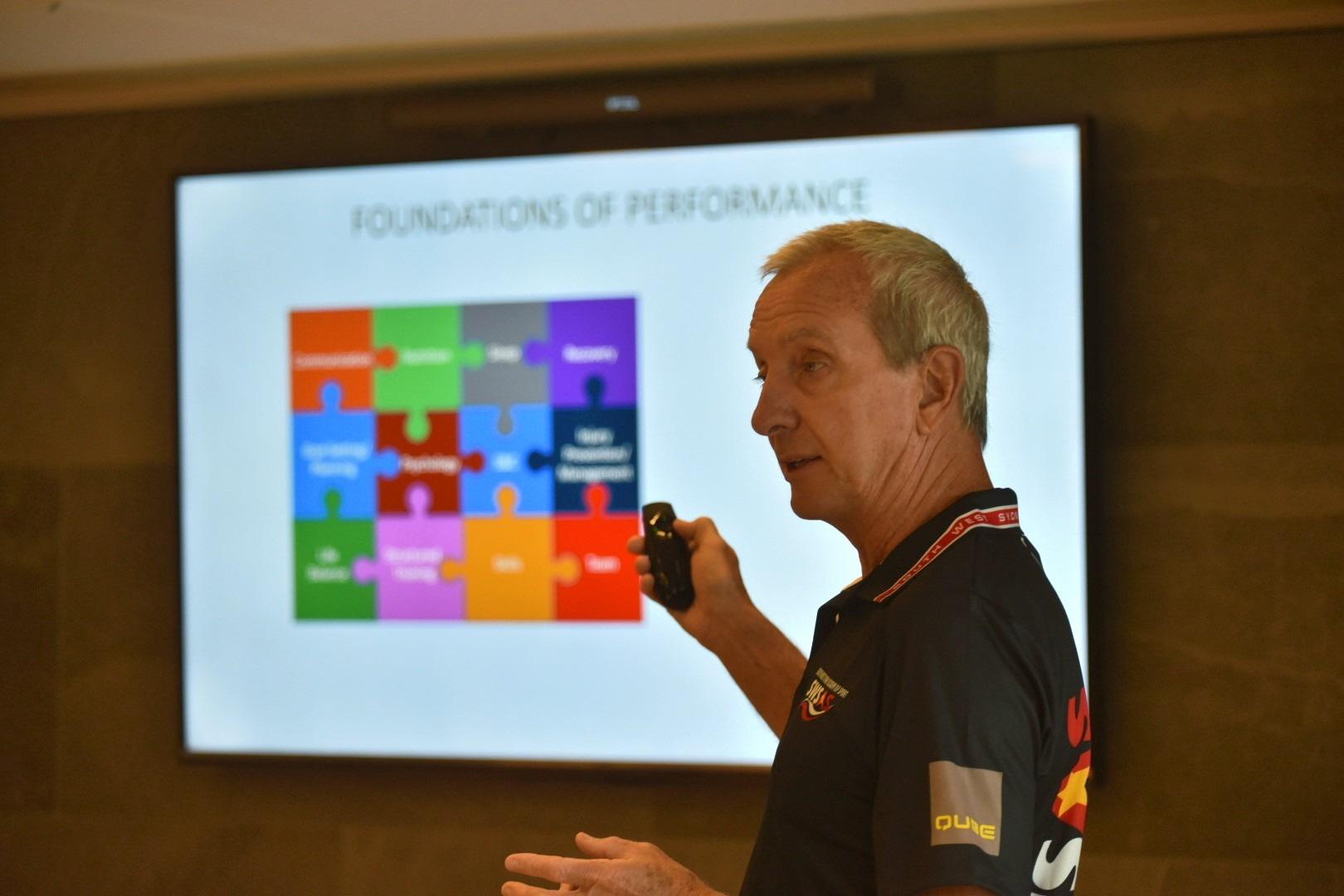
One of the most common concerns coaches who are not familiar with the Academy will raise is thatofLoadManagement.
This is where communicating with your Academy coachiskey.
So what is Load Management?
Load Management in simple terms is essentially knowingwhereyouareinyourtrainingprogram, what you need to be focusing on, and when the desired best performance outcome is to be achieved.
Load Management can be as simple as knowing when your training sessions and games are, and planning your life (ie homework, rest etc) around them; or it can be as detailed as having a complete mapped out training program and schedule with your coach and prioritising what's important when. Whichever way you look at it, load management plays a big part in you setting outgoalsandplanningforyourathleticsuccess.
TheunfortunatesideofLoadManagementisthat itcanbeveryspecifictoeachindividualathlete's chosen sport. For example, a Load Management planforanathletewhocompetesinaraceevery four to six weeks will look very different to an athlete who competes in a team environment weekly.
TrainingLoad Takeaways
Avoid overtraining and training spikes - more does not always equal better, faster or fitter train consistently within a structured and progressive plan relevant to your sport fuel your training and competition (nutrition) before, during and after training consistently is better than binge training (ie training hard occasionally) recovery (rest/sleep) is a critical part of athletic/training progression discuss your sport specific plan/s or changes to it with your coach or a sporting professional
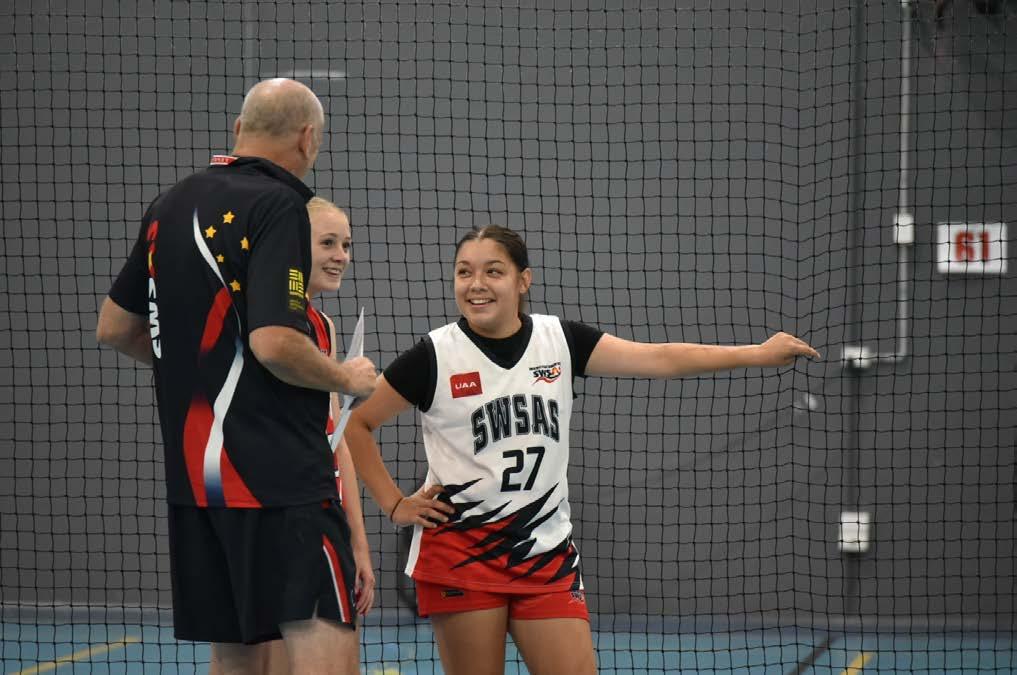
TheAcademycaughtupwithitsWestsFuture Stars Program Manager and GC Multisport Coach Guy Creber for his take on Training LoadandLoadManagement.
What will be most common with an athletes Load Management plan will be related to the TrainingStress.
Placingphysicalstressonthebodyisrequired in order to achieve progressive/positive adaptations to training. This physical stress is whatisknownastraining.
This level of stress can be changed by adjustingthreekeyelementsoftraining;
Frequencyoftraining
It is important to recognise that there is a difference between duration and volume of training. Where duration is the length of time (or distance) of the session, volume is the combinationofthedurationandthefrequency ofthetraining.
And this is what gives us the Training Load. (VolumexIntensity)
For example, training at a high frequency for a long duration and at a high intensity is a high training load. Whilst training infrequently and/or for a short duration at low intensity is a low trainingload.
Byworkingwiththesethreeelements,athletesand coachescanworktogethertomanagethetraining loadtowhattheathleteneedstoprogress.
Guy however suggests that there is indeed an art to programming an athletes load management to determine the appropriate training load for each athlete.
And each load management plan should include individual and/or team skills training sessions, strength and conditioning sessions, and planned rest/recovery.

Get to know your training load requirements.














